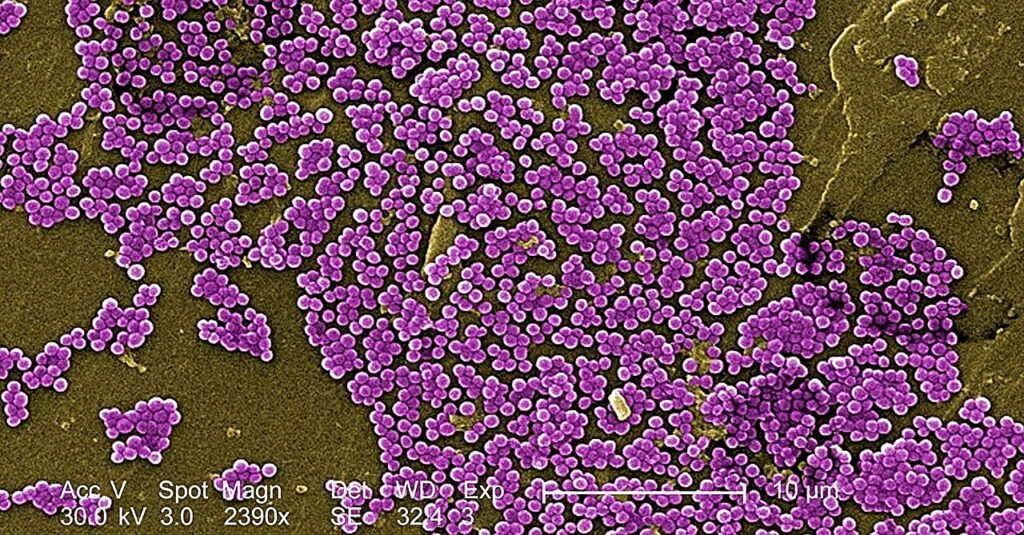Researchers at the University of California San Diego School of Medicine have made a groundbreaking discovery regarding the delayed wound healing caused by Staphylococcus aureus infections. This bacterium, known for causing skin and soft tissue infections globally, has been found to slow down the healing process through a mechanism called quorum sensing. Quorum sensing is a process where bacteria communicate and coordinate behavior with each other, and in the case of S. aureus, it plays a significant role in hindering wound healing.
The study, published in the Journal of Clinical Investigation, sheds light on how infections by S. aureus, especially methicillin-resistant strains like MRSA, continue to be a major challenge in wound care, leading to poor patient outcomes. MRSA infections are prevalent in hospital settings, contributing to surgical site infections, bloodstream infections, and pneumonia among hospitalized patients.
The research findings revealed that S. aureus activates its accessory gene regulator (agr) quorum-sensing system during wound infections in both mouse and human models. This activation suppresses key metabolic genes in keratinocytes, which are essential for rebuilding the skin barrier during wound healing. Disrupting the agr system in S. aureus was found to restore normal wound healing and keratinocyte function, even in the presence of high bacterial levels. Interestingly, exposure to harmless bacteria like Staphylococcus hominis did not impede healing and actually promoted beneficial metabolic activity in skin cells.
These findings have significant implications for treating chronic wounds and hospital-acquired infections. By targeting the agr system, it may be possible to enhance wound healing without relying on antibiotics, thereby reducing the risk of antibiotic resistance and improving patient outcomes. The study also emphasizes the importance of the wound microbiome and suggests that therapies aimed at preserving or restoring healthy skin bacteria could aid in recovery.
While further research and clinical trials are necessary to translate these findings into specific treatments, the study paves the way for innovative approaches to managing wound infections. This could potentially revolutionize care for patients with chronic and difficult-to-heal wounds. The study was led by Michelle D. Bagood, Ph.D., a postdoctoral researcher, and Richard L. Gallo, M.D., Ph.D., professor and chair of the Department of Dermatology at UC San Diego School of Medicine.
For more information, the study titled “Staphylococcus aureus accessory gene regulator quorum-sensing system inhibits keratinocyte lipid enzymes and delays wound repair” can be accessed in the Journal of Clinical Investigation. The DOI for the study is 10.1172/jci190411.
This research was conducted by the University of California – San Diego, and for further details, you can visit their website at http://www.ucsd.edu/portal/site/ucsd.


